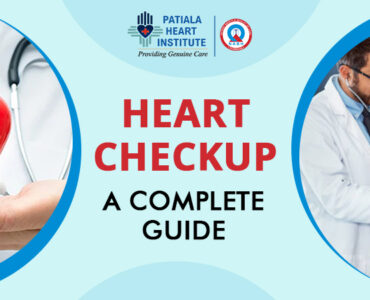The chilly season heralds a time characterized by dropping temperatures, shorter daylight hours, and, often, inclement weather conditions. In various parts of the world, this season can range from moderately cool to freezing temperatures, accompanied by snowfall or icy conditions.
The colder climate prompts people to layer up in warm clothing, seek indoor shelter, and rely on heating systems to stay comfortable. The atmospheric change impacts daily routines, activities, and even emotional well-being, creating a distinct shift in lifestyle patterns.
Importance of Heart Health During Cold Weather
Cold weather poses specific challenges to heart health due to various physiological responses to the dropping temperatures. Research suggests that during colder months, the heart works harder to maintain body heat, causing blood vessels to constrict and blood pressure to rise. Additionally, the combination of cold weather and physical exertion, like shoveling snow or exercising outdoors, can strain the heart.
Individuals with existing heart conditions or risk factors such as high blood pressure, cholesterol, or diabetes need to be especially cautious during this season to prevent potential heart-related complications. Thus, prioritizing heart health becomes paramount to mitigate risks associated with the chilly weather conditions.
Understanding the Impact
The cold weather exerts a noticeable impact on cardiovascular health. As temperatures drop, the body’s response includes blood vessel constriction to conserve heat, causing a rise in blood pressure. For individuals with underlying heart conditions or compromised cardiovascular systems, this increased workload on the heart can be particularly taxing. Moreover, cold weather prompts blood to clot more readily, potentially raising the risk of heart attacks or strokes, especially in susceptible individuals.
Common Heart Health Risks in the Chilly Season
During the chilly season, certain factors amplify the risk of heart-related issues. The strain on the heart due to increased blood pressure and the tendency for blood to clot more easily can escalate the likelihood of heart attacks, strokes, and related complications. Individuals may also experience an exacerbation of existing heart conditions or symptoms due to the combination of cold weather and physical exertion.
Moreover, the prevalence of respiratory infections like the flu during this season can indirectly impact heart health, as these infections can put additional stress on the cardiovascular system. Understanding and managing these risks is crucial for maintaining optimal heart health in colder climates.
Strategies for Heart Health Protection
Maintaining Physical Activity and Exercise
During colder months, staying physically active is one of the essential heart health tips. Engaging in indoor exercises like yoga and aerobics or using home workout equipment helps sustain cardiovascular fitness. Layering up and taking brisk walks or engaging in winter sports outdoors while maintaining caution can also boost heart health and circulation.
Adapting Diet for Heart Health in Cold Weather
Adjusting the diet to suit colder climates is pivotal for heart health. Incorporating warm, nutrient-dense foods like soups, stews, whole grains, lean proteins, and vegetables not only provides warmth but also nourishes the heart. Including heart-friendly fats like those from nuts, seeds, and fish rich in omega-3s can aid in maintaining cardiovascular health.
Managing Stress and Mental Well-being
Cold weather often coincides with increased stress levels. Stress impacts heart health adversely. Practicing relaxation techniques such as meditation, deep breathing exercises, or mindfulness can alleviate stress and promote mental well-being, thereby positively impacting heart health.
Importance of Regular Check-ups and Consultation
Frequent health check-ups and consultations with healthcare providers are indispensable. Regular monitoring of blood pressure, cholesterol levels, and overall cardiovascular health helps detect and manage any potential risks or issues early, ensuring proactive care and management of heart health.
Hydration
Maintaining proper hydration is crucial, especially in colder months when the body’s thirst response might decrease. Drinking adequate water supports heart function and overall health.
Sleep Quality
Adequate sleep is vital for heart health. Ensuring a consistent sleep routine and quality rest aids in reducing stress levels and supporting cardiovascular wellness.
Avoiding Excessive Alcohol and Smoking
Limiting alcohol intake and abstaining from smoking significantly reduce the risk of heart disease and related issues during colder seasons.
Outdoor Safety
When engaging in outdoor activities during chilly weather, dressing warmly and protecting oneself from extreme cold helps prevent cardiovascular strain and related health complications.
Managing Salt Intake
Limiting excessive salt consumption helps regulate blood pressure and prevents heart-related complications.
Incorporating Antioxidants
Foods rich in antioxidants, such as berries, dark chocolate, or nuts, combat oxidative stress, supporting heart function.
Warm Beverage Choices
Opting for warm, non-caffeinated drinks like herbal teas or warm water with lemon enhances circulation and keeps the body hydrated.
Understanding Medication
Adhering to prescribed medications and understanding their impact on heart health is vital. Consulting healthcare providers for medication-related queries is crucial.
Encouraging Family Engagement
Engaging in heart-healthy activities as a family unit promotes a supportive environment and instills healthy habits in all family members.
Special Considerations
Vulnerable Groups: Elderly and Those with Existing Heart Conditions
Elderly individuals and those with pre-existing heart conditions are particularly vulnerable during colder seasons. Cold weather can strain the heart as it works harder to maintain body warmth. These groups might face increased risks of heart-related complications like heart attacks or exacerbation of existing conditions. They must adhere to prescribed medications, maintain warmth, and follow healthcare provider recommendations diligently to safeguard their heart health during the chilly season.
Impact of Winter Holidays on Heart Health
Winter holidays often accompany dietary indulgences, increased stress, and irregular routines, which can negatively impact heart health. Rich, high-calorie foods, excessive alcohol intake, and heightened stress levels can elevate blood pressure and cholesterol levels, posing risks to heart health. It’s important to practice moderation, balance indulgences with healthier choices and manage stress effectively to mitigate the adverse impact on heart health during festive seasons.
Conclusion
In the cold weather, protecting heart health is paramount. The chilly season can strain the heart, leading to increased risks for vulnerable groups and impacting cardiovascular well-being. Strategies like exercise, a heart-healthy diet, stress management, regular check-ups, and special attention for at-risk populations are crucial elements in safeguarding heart health during this time.
As the cold sets in, prioritizing heart health becomes essential. By adopting healthy lifestyle practices, maintaining awareness of potential risks, and seeking medical advice promptly, individuals can proactively protect their hearts during the chilly season. Let’s prioritize our well-being, making conscious choices to ensure our hearts stay healthy and strong, enabling us to enjoy the season’s charms to the fullest.
Also, keep in mind if you feel any discomfort in your heart, make sure to seek medical help. Contact Patiala Heart Institute & Multispecialty Hospital and consult one of our Heart disease specialists in Patiala or our best Cardiothoracic surgeon.







